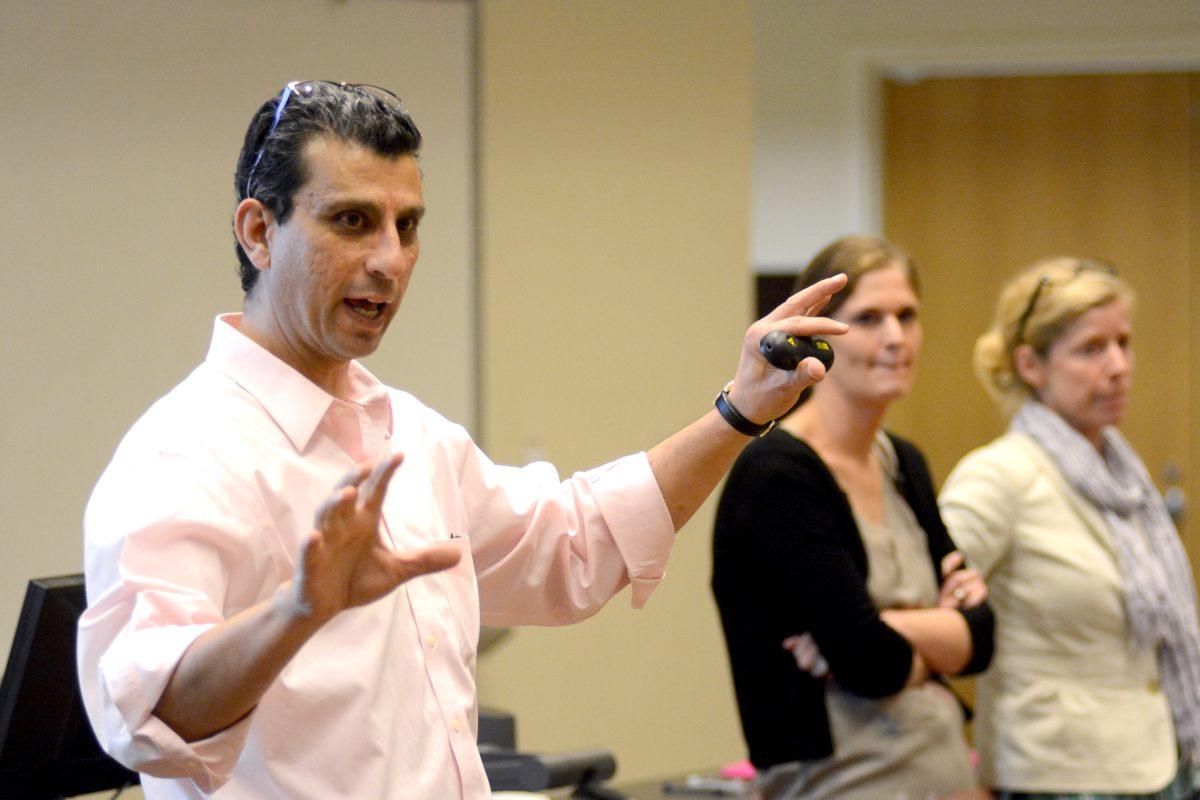The Middle East studies faculty led a panel discussion about the Crisis in Syria in Riddick Wednesday night. By the end of the discussion, members of the audience had come to the realization that the crisis in Syria is dire, and a global diplomatic effort would pave the way toward peace.
The panel was led by Professor Akram Khater, director of the Middle East studies program, and students, faculty members and citizens interested about the crisis attended to discuss and learn about the events of the civil war in Syria, which has ravaged the Middle Eastern nation for the last three years.
Other panel members included Anne Clément, assistant professor of history, Anna Bigelow, associate professor of religious studies and Jodi Khater, section coordinator for Arabic.
Bashar-al-Assad, president of Syria, has refused to step down even after the U.N. has reported about 100,000 dead. This month his regime was accused of using chemical weapons on civilians, resulting in the death of more than 1,000 people.
After the United States and its allies threatened to bomb strategic targets in Syria, Russia, which had been a stalwart for opposing the United States at the U.N. Security Council, aided in brokering a deal with the United States and Syria, which resulted with the three nations signing an agreement that Syria would destroy its chemical weapons starting in November 2013 and completed by midway 2014.
Though Khater applauded the United States’ and Russian’s diplomatic efforts, he criticized approaches that the United States had taken in the past.
“One of the problems I have with how the United States has approached the Middle East for the last 30 years or so, is, basically, we see the Middle East as a series of nails and we have the hammer,” Khater said. “At any moment, our approach has been to just hammer away. We seem to think that every problem in the Middle East can be solved with military intervention. Whether we’re talking about cruise missiles, or putting boots on the ground, or funding rebels, we seem to think in military ways.”
Chuck Jabr, a local businessmen who originally emigrated from Syria, said he was skeptical of intervention by the United States.
“I can tell you right now, the United States has no business to attack anybody for no reason,” Jabr said. “The chemical weapons that everybody is talking about; there are 150,000 people that have been killed in Syria. Every day there are about 200, 300 people dying. It’s just now that the United States, and their allies have woken up to save the Syrian people, because of chemical weapons?”
Anna Bigelow, professor of religious studies, and one of the panelists present at the discussion said the solution that would lead to peace in Syria would be led by diplomacy, not violence.
“Diplomacy is a form of conflict management,” Bigelow said. “Elections are a form of conflict management. You can think of us having a civil war every four years, but we resolve it through ballots rather than guns. We are always working out internal conflicts in our society, and we’re working it out in much healthier ways here.”
Despite all the talk of violence and tragedy, Jabr told the audience that the Syrian people continue to seek a peaceful future for their nation.
“Syrian people are human just like you and me; beautiful people, educated people, old men and women, beautiful kids, everybody in Syria, we love each other. Before this happened, we had so many different friends from so many different factions, there is a lot of hands and a lot of countries who have interests in dividing Syria. I don’t want you to leave here thinking that Syria is a land where everybody is killing everybody, it’s a very peaceful country where everybody loves each other.”








